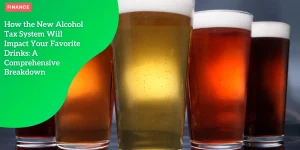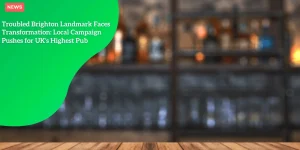Alarming Pub Closure Rate: 6 UK Pubs Shutting Down Weekly in 2024 – Full Analysis
Anúncios
The Current Crisis: Understanding the Scale of UK Pub Closures
The British pub industry is in trouble.
In 2024, approximately six pubs are closing their doors each week, leading to an expected loss of 4,500 jobs.
Anúncios
This troubling trend highlights the urgent need for government action to prevent more “completely avoidable” closures, as emphasized by the British Beer and Pub Association (BBPA).
Recent Statistics and Impact
The BBPA reported that 289 pubs in England and Wales closed permanently last year, signaling a bleak future for the sector.
Anúncios
Certain regions were more affected than others, with the East Midlands losing 34 pubs in 2023 alone.
The drop in total pub numbers is stark, with figures decreasing from 47,613 pubs in 2019 to just 45,345 in 2024.
This significant decline underscores the growing urgency for intervention.

Broader Economic Challenges
Pubs are struggling against a backdrop of rising interest rates, which have driven up borrowing costs.
Persistently high energy bills add another layer of financial strain, making it difficult for many pubs to stay afloat.
Additionally, the ongoing cost of living crisis has reduced disposable income, causing consumers to cut back on pub visits.
These economic pressures have collectively eroded the financial stability of many establishments.
Calling for Immediate Support
Recognizing this distressing trend, the BBPA has loudly called for government support.
Their requests include comprehensive business rates reform and a phased approach to implementing new employment costs.
Without these changes, pubs face an uphill battle to maintain their role as vibrant community hubs and vital contributors to the local economy.
The situation is dire and necessitates swift and meaningful action.
The next chapter will delve into the economic challenges that have exacerbated this crisis and explore potential solutions to safeguard the future of pubs.
Economic Challenges Facing the Pub Industry
Rising Borrowing Costs
The escalating interest rates have dramatically increased the borrowing costs for pubs, pushing many to the financial brink.
This sector, known for its thin profit margins, is particularly vulnerable to shifts in interest rates.
As pubs strive to keep their doors open and maintain their cherished role within communities, the heightened borrowing costs become a significant financial burden.
Expensive loans and credit facilities exhaust available capital, rendering it difficult for pub owners to invest in improvements or even maintain day-to-day operations.
Soaring Energy Bills
Another major pressure point is the consistently high energy bills that pubs face.
With energy prices showing no signs of abating, pubs are earmarking a substantial portion of their profits to cover these essentials.
High energy bills mean increased costs for heating, cooling, and maintaining suitable conditions for patrons.
The challenge is compounded because these outlays are non-negotiable; no pub can afford to skimp on heating during the chilly UK winters or cooling during the occasional warm summer day.
Cost of Living Crisis
The cost of living crisis translates into reduced consumer spending and limited disposable income, further straining the pub industry.
Patrons who regularly visited their local pubs are cutting back, choosing to save money amidst escalating costs for basics like housing, food, and transportation.
This drop in disposable income means fewer pints are poured, fewer meals are served, and ultimately, fewer profits are made.
Pubs that once thrived on a steady stream of loyal customers now face the bleak reality of empty seats and reduced revenues.
This trifecta of economic challenges — escalating borrowing costs, persistently high energy bills, and diminished consumer spending — is driving the UK pub industry towards an unprecedented crisis.
The next set of financial pressures will only compound these woes, setting the stage for further struggles ahead.
Upcoming Financial Pressures in 2024
The UK pub industry is heading into a stormy 2024, with upcoming financial pressures set to exacerbate existing challenges.
Key among these are the new implementations from the October Budget, which will add a staggering £650 million to sector costs.
This financial burden comes on top of already rising borrowing costs due to increased interest rates, persistently high energy bills, and a cost of living crisis that is dampening consumer spending.
October Budget Hits
The October Budget introduces several measures that will impact the pub sector significantly:
- 🍺 Sector Costs Increase: The October Budget’s measures are expected to collectively impose an additional £650 million burden on the sector. These costs are a result of changes in taxation and employment costs, likely squeezing the already narrow profit margins of pubs.
- 🍺 Business Rates Discount Reduction: Many pubs will see a reduction in the business rates discount for the hospitality sector, dropping from 75% to 40%. For an industry where every penny counts, a smaller discount translates directly into higher operating costs.
- 🍺 National Insurance Contributions and Minimum Wage: Increases in National Insurance contributions and the minimum wage coming into effect in April 2024 will further strain pub resources. While these changes aim to improve employee conditions, they add financial pressure on pub owners struggling to stay afloat in an already turbulent market.
Managing Rising Operational Costs
Pubs are not only dealing with increased financial obligations from the Budget but are also grappling with persistently high daily operational costs.
Energy bills, for instance, remain a significant strain on finances, leaving many publicans looking for cost-cutting measures in other areas just to keep up with their utility expenses.
The Need for Government Support
The British Beer and Pub Association (BBPA) has been vocal about the need for government intervention to prevent what they describe as “completely avoidable” closures.
The organization argues that business rates reform is a critical step to relieve some of the financial burdens faced by pubs. They are advocating for:
- 🍺 Meaningful Business Rates Reform: A restructured and fairer property tax system is crucial. Current business rates impose a heavy burden on pubs and other high street firms.
- 🍺 Phased Implementation of Employment Costs: Spreading out the changes to employment costs, such as National Insurance and minimum wage increases, would help pubs manage their resources better and avoid sudden financial strain.
The BBPA believes that with the right support, pubs can continue to thrive and remain integral parts of their communities.
They insist that the demand for pub services remains robust, and the industry can continue to contribute positively to the economy if these additional pressures are managed effectively.
Government responses have included promises for a lower business rate starting from 2026, as well as initiatives to tackle high street decline.
However, many in the pub industry stress that immediate, targeted interventions are needed to ensure their survival through 2024.
Industry Response and Call for Action
The pub industry is facing a perfect storm, and the British Beer and Pub Association (BBPA) is raising the alarm.
With six pubs closing weekly and an estimated 4,500 job losses expected in 2024, the situation is dire.
The BBPA insists that these closures are “completely avoidable” and calls for urgent government intervention to save the industry.
Demand for Meaningful Business Rates Reform
One of the BBPA’s key demands is for the government to reform the current business rates system, which places a heavy tax burden on high street businesses, including pubs.
The existing regime disproportionately affects pubs, which rely on physical premises to operate and interact with their customers.
Business rates have long been a bone of contention, and the BBPA argues that an overhaul is critical for the survival of pubs.
The high costs associated with these rates hinder the ability of publicans to maintain profitability, especially when combined with other financial pressures.
Request for Phased Implementation of New Employment Costs
Another pressing issue is the impending increase in employment-related costs.
The October Budget brings with it higher National Insurance contributions and an increase in the minimum wage.
While supportive of fair wages, the BBPA advocates for a phased implementation of these costs.
This approach, they argue, would give pubs the time they need to adjust and absorb the changes gradually rather than being hit all at once.
By easing the financial blow, pubs would stand a better chance of staying open and continuing to serve their communities.
Urgent Call for Immediate Government Action
Emma McClarkin, the BBPA’s chief executive, has been vocal about the need for immediate action.
She emphasizes that pubs remain popular and busy; the true issue lies in the high operational costs erasing their profitability.
She states, “The scale of these closures is completely avoidable because pubs are doing a brisk trade.
Consumer demand is there, however, profits are being wiped out with sky-high bills and pubs facing yet more rates and costs come April.”
The BBPA’s message to the government is clear: introduce meaningful business rates reform and phase in new employment costs.
Without targeted interventions, the economic and cultural damage to local communities could be irreversible.
The livelihoods of thousands of employees and the social fabric of neighborhoods depend on pubs remaining viable.
McClarkin and the BBPA stand united with those calling for a return to thriving community hubs, urging the government to act swiftly.
The survival of numerous pubs may well hang in the balance.
With the current trajectory underscoring six closures a week, the need for action is immediate and critical.
Now, addressing the government’s response and future plans…
Government’s Response and Future Plans
As the pub industry grapples with mounting economic pressures, the UK government’s response aims to provide a lifeline.
One of the key measures set to take effect is the introduction of a new lower business rate from 2026.
This initiative intends to alleviate some of the financial burdens currently strangling pub operations by reducing the tax liabilities on property.
Tackling Anti-Social Behavior and Empty Properties
In an effort to support not just pubs but entire high streets, the government has rolled out initiatives to address anti-social behavior and repurpose empty properties.
By reducing unwanted activities and revitalizing vacant spaces, these moves are designed to create more welcoming environments that can attract patrons back to local businesses, including pubs.
The focus on safer and more lively high streets is an essential part of the broader strategy to ensure that these community hubs remain viable.
Measures to Support High Street Revival
The government is also taking steps to invigorate high streets, recognizing the role that pubs play in their ecosystem.
This includes measures aimed at improving the commercial viability of high street businesses through various support schemes.
The overarching goal here is to create a thriving community space where pubs can continue to serve as central gathering points.
These future plans reflect a multi-faceted approach to tackling the crisis.
While reducing business rates and addressing broader community issues are positive steps, the timing of these changes—many of which won’t take effect until 2026—remains a critical concern for industry leaders and pub owners who need immediate relief.






